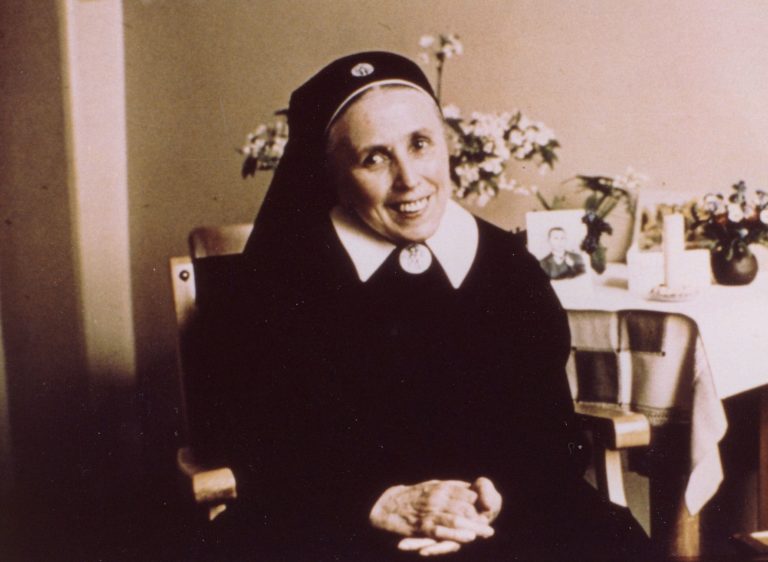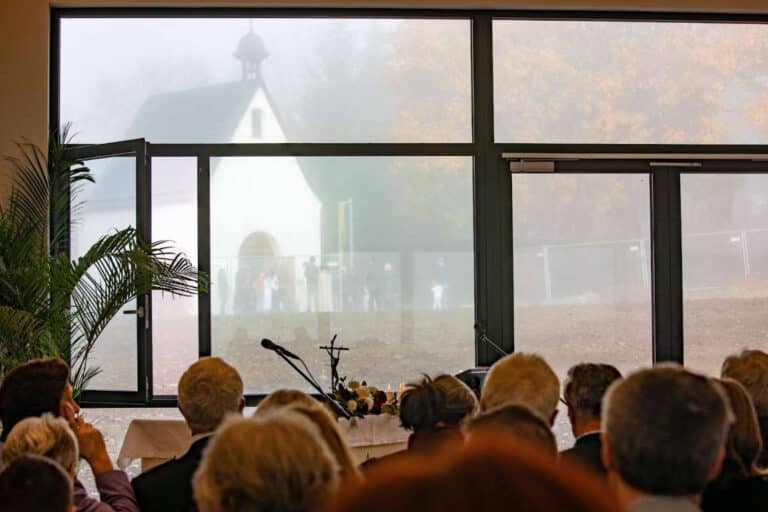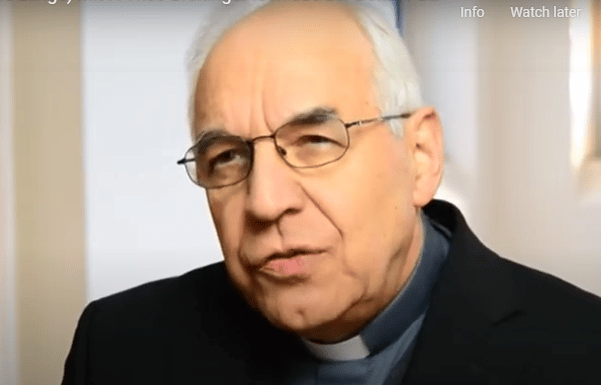Father Alexander Menningen: “Yes, Father, I will go with you”
Many of us know that Father Alex Menningen “was the dearest and closest collaborator of our Father and Founder”. We also know that Father Kentenich asked him the famous question about whether he would follow him into exile, risking everything: “Alex, do you go with me?” And his answer was: “Yes, Father, I go with you”. The lectures and books he prepared on Joseph Engling are also well-known. But, who is “Father Kentenich’s faithful disciple” and what message could his person bring us today?
Alexander Menningen was born on October 20, 1900, in Hillscheid, about six kilometers from Schoenstatt. In the fall of 1913, he entered the Pallottine minor seminary. Hernán Alessandri tells us that when Alex heard Father Kentenich’s sermon in Hillscheid in 1913, he was very impressed by his words and his persona, so he decided to become a priest and entered the seminary that same year.
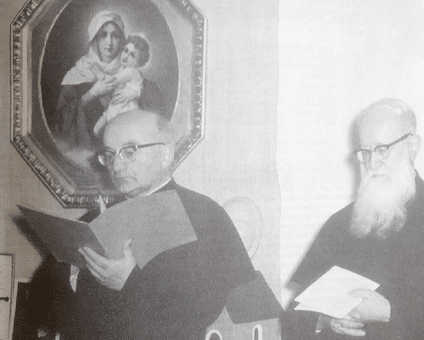
Father Kentenich’s close collaborator
In 1915 he joined the Minor Congregation and Joseph Engling became a role model for his life. After World War I he completed his studies for the priesthood in Limburg and Rome. During his novitiate, during a visit to Schoenstatt, the words and the person of the father and founder proved to be fundamental in strengthening his vocation:
“Look, your name is on the memorial plaque in the Shrine. Thus, your name and your person are deeply inscribed in Mary’s heart. You must remain faithful to her all your life, and by placing your trust in her, you can take all the risks regarding your faith and your priestly vocation.”
On August 8, 1926, he was ordained as a priest in Rome and in 1927 he received his doctoral degree in Theology. In 1928, when the Covenant House was blessed, Father Menningen became one of the father and founder´s closest collaborators. Since then, he became advisor to the Boys’ Youth at a time when the Ver Sacrum generation was developing, inspired by the life of Joseph Engling and other heroic congregants as role models.
He strives to help the Schoenstatt Family in cultivating its total surrender to God
Since 1941, Father Menningen became a member of the provincial leadership of the Pallottines and, in this capacity, he contributed as a mediator for the Movement. He was also one of the main contacts with the founder when Father Kentenich was a prisoner in the Koblenz prison. Father Kentenich wrote to his disciple on January 20, 1942: “Here I am… and I cannot do anything else. Do me a favor: see to it that the Family cultivates the Blank Check (full acceptance of God’s will for oneself) and the Inscriptio (request that God send the crosses He has planned for you, in His perfect plan of love). Then I will regain my freedom. That is always my answer.”
After World War II, Father Menningen was appointed spiritual advisor to the Brothers of Mary and contributed to the founding of the Institute. He was also appointed vice-postulator for the cause of beatification of Joseph Engling.
In all those years his work was extensive, but even more significant was his collaboration and fidelity to Father Kentenich, particularly during the time of exile. During Father Kentenich’s exile in Milwaukee, Father Menningen became the head and point of reference for the Schoenstatt Family. Because of his faithful following of the founder, he was prompted to leave Schoenstatt in 1954.
In 1965 Rome authorized the constitution of the Secular Institute of the Schoenstatt Fathers. Father Menningen was one of the first to join the new community.
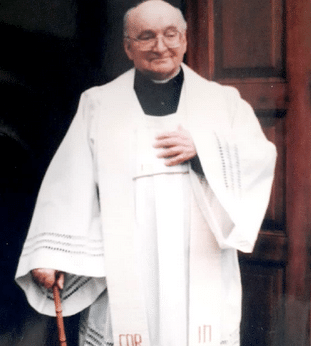
Father Joseph Kentenich, who are you really? Tell me your secret
What motivated you to remain loyal to the founder, even when his person was questioned even by the Church itself? Father Menningen’s description of the Father and Founder in 1984 gives us an insight into his vision:
“Father Kentenich encompassed in his person the prophet capable of seeing, and the theologian capable of reflecting by virtue of a markedly metaphysical way of thinking. Father was the recipient of a charism, of a great gift of the Holy Spirit, but also of all the qualities of a gifted educator and shaper of men. He was a person totally oriented to the supernatural and passionate about God, and at the same time totally focused on the immanent and authentically human matters. In the fifty-five years that I accompanied him on his life’s journey, I often asked myself this question: ‘Who are you really? Tell me what your secret is.´ The answer to this unspoken question was the following: Father carried within himself a divine secret, the imprint of which one could discover, but it could not be penetrated to the bottom.”
Father Menningen summed up his life and his attachment to the Founder in this way: “Although I always followed him, I experienced an increased freedom, independence, creative capacity, and a strengthening of my personality. My life was not spent in the shadow but in the light of someone greater than myself.”
After Father Kentenich’s death, Father Menningen became the main inspirational figure in the Schoenstatt Family and became an advisor to the General Presidium. He prepared the process for Father Kentenich’s beatification and was his postulator until 1976. On May 19, 1994, Father’s closest collaborator died in Schoenstatt, on Mount Sion.
References:
– Alessandri Morandié H. (2009). “The history of Father Kentenich.” Nueva Patris.
– Ammann R., Bausenhart K. and Klein J.M. (1994). Der Gefährte: Erste Erinnerungen an P. Dr. Alexander Menningen ISCH. Patris Verlag.
– Locher P., Niehaus J., Unkel H.W. and Vautiér P. (2011). Kentenich Reader Volume 1: Encounter with the Father and Founder. Nueva Patris.
– Neuenhofer J.M (2014). Looking at Father: dedicated in gratitude to Father Joseph Kentenich on the centenary of the founding of Schoenstatt. Schoenstatt Publishing House.
– Schmiedl J. (2000). Alexander Menningen. Patris Verlag.

